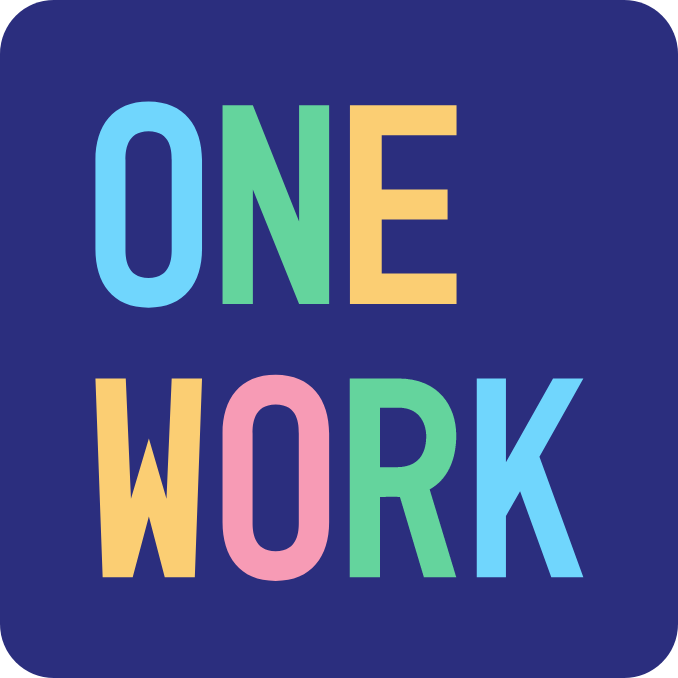No. 125: Denied Claims
As health insurance companies turn to software algorithms to deny claims, they're facing class-action lawsuits and a growing number of companies putting competing algorithms in the hands of consumers.

Before we jump into this week's discussion on health insurance software, I'd like to share what I've been reflecting on lately. Nothing too philosophical, I promise!
I've been mulling over ways to make the newsletter – and One Work overall – more valuable to you and the other people who have found this small corner of the internet.
Over the past few years, we've exchanged emails, met over Zoom, grabbed coffee, and partnered on projects, and it has been more than I thought possible when I started writing. Frankly, I feel like we have untapped potential – and I could use your help digging into it.
I put together a five-minute survey about the newsletter: which sections you can't wait to read, which sections you skip over, and what would help you meet your social impact goals more generally. Super quick. Some might say easy. Would you please fill it out?
I'll have more to share on the path forward soon. Thanks in advance for sharing your thoughts, and as always, for reading each week. You make it worth writing.
~ Greg
What we're reading
Health insurance companies are facing multiple class-action lawsuits over the use of software algorithms to deny patient care. A new batch of companies is fighting back with their own algorithms to appeal those decisions. (The Guardian)
- To give a sense of scale to this problem, you have to look at the statistics in the lawsuits:
- A lawsuit against Cigna alleges that they denied more than 300,000 cases over a two-month period, which means they denied a claim every 1.2 seconds. These are still "physician-reviewed" claims, which means the software is effectively making a recommendation that the physician is then reviewing. The question is how much time a physician receives for that review; is it nuanced and thoughtful or made under time pressure?
- A second lawsuit against UnitedHealth Group alleges that a predictive health algorithm they purchased in 2020 has a 90% error rate, meaning when a claim is denied, 9 out of 10 of them are reversed upon appeal. The problem here is that people don't appeal denied claims: for both UnitedHeath Group and HealthCare.gov, people appealed only 0.2% of claims.
- I'm reminded of statistics about mail-in rebates: when discounts take the form of a mail-in rebate, people return them only about 50% of the time. The friction is enough to keep people from getting their money back, even when they're in the right.
- The better solution would be for the insurance company to fix their algorithms, but they're not incentivized to do so. Here's where the story takes a turn: new tools are emerging to help people appeal their denied claims.
- For example, ProPublica helps you submit a records request for why a claim was denied.
- An engineer at Totally Legit Co. – I'm not making that name up – created a tool that takes your denied claim and your medical documentation and turns it into an appeals letter stating why your claim should qualify.
- These tools are not just for consumers either: hospitals have a stake in the game as well, be it financial or ethical, and are investing in generative AI tools to quickly appeal denials.
- This seems a bit unnecessary, doesn't it? One company writes software to streamline operations, albeit incorrectly, then competing companies emerge with their own software to correct the problem. It's incredibly wasteful: people spend energy writing competing software, that software runs on servers that consume electricity and require maintainers, and consumers still have to initiate appeals even if it's easier to do so with support.
- How do we fix this? It seems like legislation could help, provided they plug the loopholes. You've probably seen a metric in your corporate life that incentivized an unintentional behavior.
- We should also spread the word about appeals. They work, even if they're a pain in the butt to put together. Providers spent $7.2 billion in administrative costs on Medicare and Medicaid denials alone each year.
Job of the week
Years ago, I read about human-centered design and how companies were using it to build better products to help communities around the world. It puts people at the center of the design process in a way that feels uniquely empathetic, and I was reminded of that approach when reading about the featured company this week, Awana Digital.
They are hiring a Senior Backend Developer to work on Mapeo, their software that provides mapping services in offline environments. True to its stakeholders, the team at Awana Digital is distributed around the globe, making this a great way to expand your reach while making a difference. This is about as flexible as work arrangements come as well – my kind of perk!
Community roundup
- A team of researchers at Oregon Health & Science University is working on an influenza vaccine that would require one injection and provide lifetime protection. (Axios)
- Employees at a Philadelphia Whole Foods Market have become the first to unionize under the brand, which is now owned by Amazon. (ABC News)
- The American Climate Corps, which compiled entry-level environmental impact jobs from organizations around the country, has shut down. The people who found jobs through the program have not lost them, but the site itself has been frozen. (Grist)
- Last year, Vermont set up a first-of-its-kind superfund where fossil fuel companies would pay the state for damaging pollution. Since then, New York has passed their own version of the legislation and other states have proposed similar actions. The American Petroleum Institute has now sued Vermont in what appears to be an attempt to dissuade further superfund efforts. (Inside Climate News)
- California is increasingly able to cover 100% of the state's electricity demand using renewable energy sources, but it hasn't resulted in cost savings. Utility companies have been sued by homeowners when equipment causes wildfires, and utilities are passing the cost of damages and modernization onto consumers. (Grist)
- Minnesota and Novo Nordisk have settled a lawsuit from 2018 that caps the price of insulin at $35 – the last of the big three manufacturers to do so. (CBS News)
- Government officials from the United States Agency for International Development (USAID), the National Labor Relations Board (NLRB), and Equal Employment Opportunity Commission (EEOC) have been put on paid leave or fired. In the case of the NLRB and EEOC, they no longer have a quorum with which to continue operating. (NYT)
- UnitedHealthcare has named a new CEO after the murder of its former chief executive, Brian Thompson, made national news in December. (NPR)
Hot job opportunities
- Sr Manager, Development Engineering – Insulet – Remote
- Customer success manager, strategic – Watershed – New York, NY or San Francisco, CA
- Senior Director, People and Culture – Teaching Lab – Remote
- Product Manager, Client-Facing – Archive – Remote
- Account Executive – Paces – Brooklyn, NY
- Senior Business Development Lead – Zero Homes – Denver, CO
- Senior Director, Strategic Implementation – Oscar Insurance – Remote
- Technical Program Manager – SPAN – San Francisco, CA
- Sales Development Representative – Makersite – Chicago, IL
- Social Media Designer & Manager – Climatebase – Remote
Resource of the week
I'm always on the lookout for another great job board for social impact opportunities, and this week I came across Climatebase. You'll find a lot of climate jobs as the name implies, but I was surprised to find that their reach extended much further than that.
My own research turned up everything from energy storage and electric vehicles to renewables and financial services for impact-minded companies. I'm going to throw this in the same category as Terra.do – if you care about environmental impact, add this job board to your bookmarks as a place to check regularly.
Test your knowledge
Last week's question took us back to the beginning of Martin Luther King Jr.'s ascent as a civil rights leader. He helped lead the Montgomery Bus Boycott shortly after Rosa Parks refused to give up her seat; the boycott's success led to the formation of the Montgomery Improvement Association, and the MIA elected Martin Luther King Jr. as its president – some of the earliest moments in a journey that would catapult him to the national stage.
Get those trivia synapses firing for this week's question:
What company took out an advertisement in the New York Times on Black Friday in 2011 and told readers “Don’t Buy This Jacket”?
Email me your guess, and I'll send one lucky winner a couple of One Work stickers!
This is the point in the newsletter where I usually tell you about what I've been up to. This week, I thought I'd show you.
I've been spoiled with hiking opportunities lately, and this is a picture from my jaunt up Beacon Rock Trail along the Columbia River. With everything going on these days, it's not a bad idea to breathe some fresh air.

You can find me on LinkedIn and Threads.
